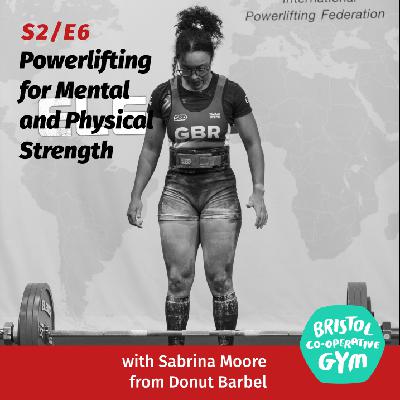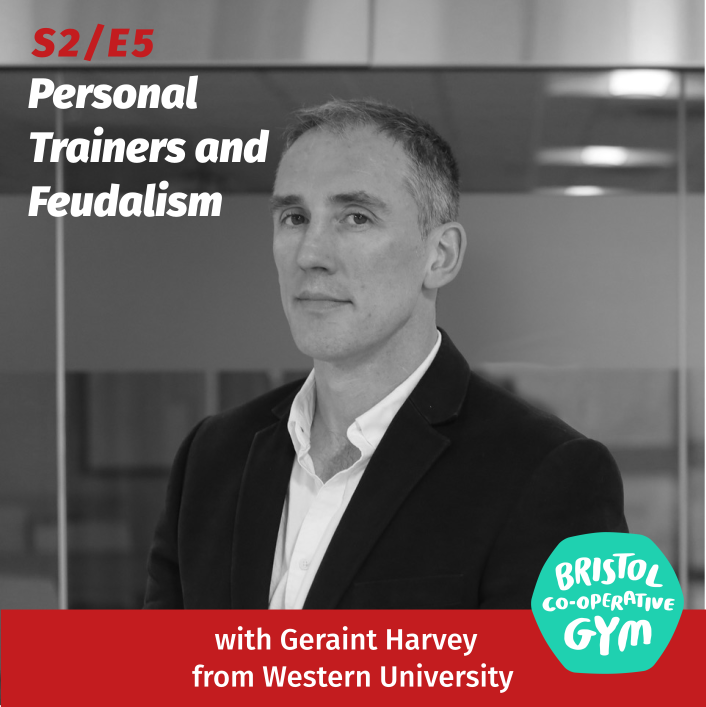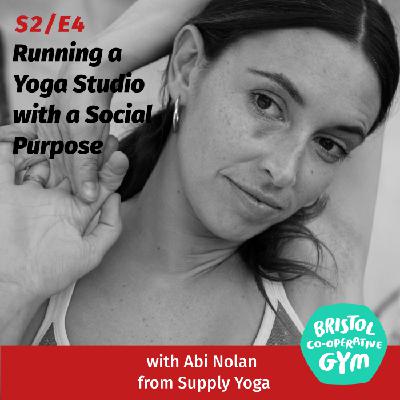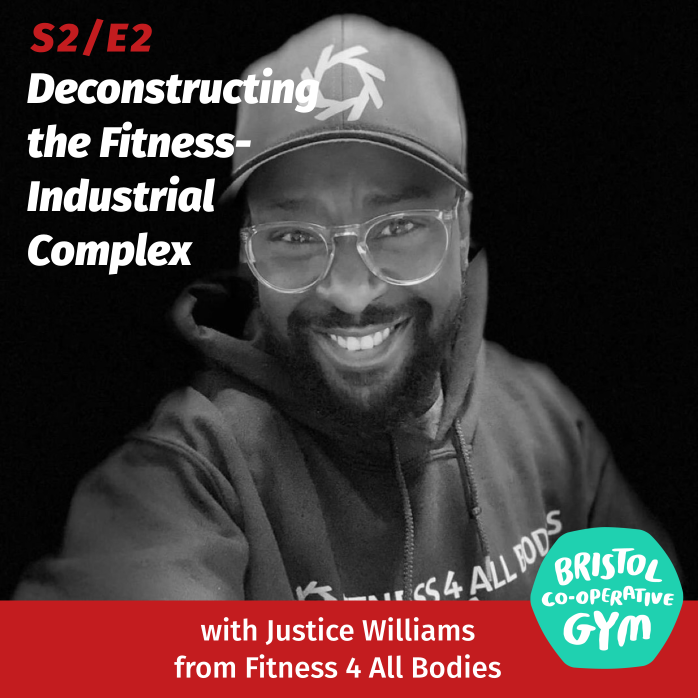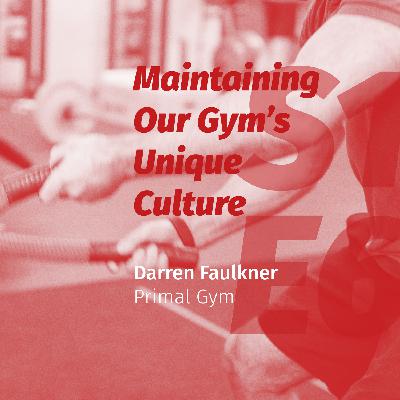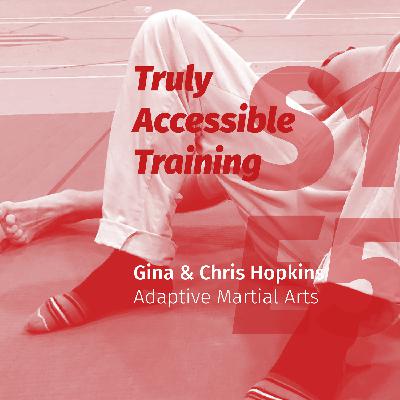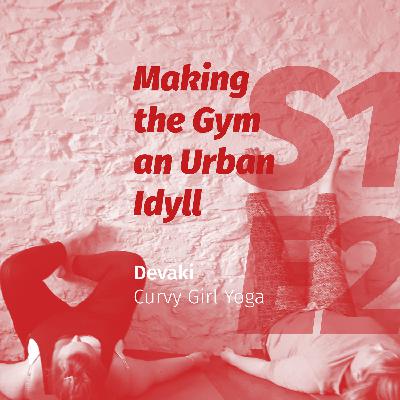Discover The Good Gym Guide
The Good Gym Guide

The Good Gym Guide
Author: Guy Lochhead
Subscribed: 7Played: 20Subscribe
Share
Description
Guy Lochhead of Bristol Co-operative Gym talks to other people on the fringes of the fitness industry about their work, the problems they see in the mainstream gym model, and what their ideal training environment would look like. Together, let’s imagine a better alternative.
12 Episodes
Reverse
This conversation is with Sabrina Moore of Donut Barbell in Cardiff. Sabrina is a 3x British champion powerlifter in the 63kg weight category, and a women's powerlifting coach who focuses particularly on the impact strength training can have on our mental health.We spoke about her journey to strength training, the role of training and potentially competing in supporting our mental health, and how to make a welcoming and inclusive yet appropriately-challenging lifting environment.
This conversation is with Professor Geraint Harvey. Harvey is the DanCap Private Equity Chair in Human Organization at Western University in Ontario. His research focuses on the employment relationship and the changing nature of work. Back in 2016 he published a paper titled 'Neo-villeiny and the service sector: The case of hyper flexible and precarious work in fitness centres' about the parallels between modern working arrangements of gyms and personal trainers and medieval serfdom.I was keen to talk with Harvey about this and to ask for his help in imagining alternatives.
Today I am speaking with Abi Nolan, the founder of Supply Yoga. Supply is a social enterprise changing the culture of access to wellbeing services through an innovative cyclical business model - paid subscriptions for their online classes subsidise wellbeing services for marginalised communities in east London.It's an extremely well thought-through way of doing things that has run successfully since 2015 and is an inspirational example of putting some of the ideas discussed in the last episode with Laura McCafferty into practice.I was keen to ask Abi about the specifics of how Supply works, and especially about the behind-the-scenes running-a-business stuff and developing healthy, trusting relationships with their partners.
This interview is with Laura McAfferty, the founder of Inclusive Wellness, a social enterprise and community committed to increasing accessibility, diversity and inclusivity in the private health & wellness industry.We spoke about the need for continuing personal development on these subjects and the potential role of standards in improving practice and giving marginalised people better access to health and wellness services. We also spoke about the potential pitfalls that any fixed approach might have, like one-off certifications or directories that aren't regularly updated.
I'm so excited to share this conversation with Justice Williams and to reflect on how his world-leading work at Fitness for All Bodies can inform our renovation of Bristol Co-operative Gym as we make it more welcoming and adaptable to more people commonly excluded from gyms.I found this conversation with Justice enormously moving and inspiring. His conception of fitness offers a completely different paradigm from what is commonly presented. He views gyms as one of many potential spaces for community building, and fitness as a tool for self-knowledge and reconnection to ourselves and each other.Above all, it is a philosophy rooted in love, and in how much there is to gain from dismantling the Fitness Industrial Complex and opening it up to more bodies. By reproducing larger societal power dynamics, the conventional fitness industry robs diminishes us all by making us want, as Justice says, "something that is not a part of who we are". His vision of an alternative encourages us to acknowledge and recognise what has been taken, and work collectively to strengthen ourselves and our communities. The implications of this go far beyond getting fitter.
The first episode of this special series of the Good Gym Guide is with Conor Heffernan, a historian of strength currently based at Ulster University whose blog Physical Culture Study is the best resource I know of for learning about the origins of many of the characteristics of gyms nowadays, as well as some of the fascinating things that have been lost to history.
Learning about the history of these common gym features can help us see how recently they occurred, and this in turn can hopefully help us feel more confident in challenging them and imagining alternatives.
Similarly, knowing that there have been many co-operative gyms in the past, and that this was in fact the dominant form of governance for a while, can give us confidence that what we're doing is not impossible.
For the last episode of this series, I spoke with Darren Faulkner, one of the founders of Primal Gym in Leeds.
When I asked Darren to imagine his ideal training environment, he paused for a while, looked around, and then said that he felt that Primal Gym was pretty much it. He is in the rare and enviable position of having made his dream gym a reality.
In this interview, he talks us through the systems he has put in place to bring people into this vision and help them achieve what they want from their training. Everything has been thought through, from the design of the entrance and waiting area, to the initial tour, consultation, and ongoing training.
Primal Gym was named by The Telegraph in 2017 as the best facility in the UK for “those who hate the gym”, so where better to learn about alternative gym design?!
This episode is with Gina and Chris Hopkins, from Adaptive Martial Arts. AMA provide martial arts training for all abilities. Rather than coaching in a particular lineage or tradition, they take an innovative mixed approach, drawing from multiple disciplines to best suit the specific people they are working with in their classes.
They give some examples of how they assess a potential training venue as being truly, naturally accessible rather than just tokenistic, and get really specific about the journey they take new, possibly anxious trainees on, from the moment they make contact with AMA through to becoming a regular class member, and maybe even on to grading and competition.
Gina and Chris spoke about all aspects of their training environment, from regulation and governance, business and finances, considering all stakeholders, marketing, communications, coaching, layout of the space, design of clothing and equipment.... It is clear that they had already put so much thought into every aspect of what they do, and I learned so much from hearing them talk about it.
This episode is with Charlie Bones, who runs the X-Ray Spexercise Punk Aerobics classes. In the familiar environments of music venues and pubs, she pairs classic punk culture with simple aerobic exercises to share the benefits of physical activity with people who can’t stand gyms and gym playlists.
She talks about how she creates an environment where people feel okay to make mistakes, get sweaty, and look silly, and how she avoids common problems of coaching large groups - like cueing better technique without making people feel singled-out.
Charlie’s imagined training space combines huge, unconstrained dreams of beaches, jungles, water slides, live music - with provision of overlooked essentials like childcare, life skills, and affordable food. It’s an environment that wants you to feel good while training, as well as afterwards.
This episode is with David Sully, who runs two very different exercise groups in Bristol - the LGBTQ fitness classes at Hamilton House and the Yate Active Wellbeing Group.
Although the content of these classes, and the people who go to them, are very different, in both settings Dave creates a space where exercise is used as a tool not just for improving our physical health, but also to start conversations and build relationships.
Dave talks about his experience of using exercise to improve his mental health, how this led him to train as a PT and start the classes, what he’s learned in the years he’s been doing them, and how he’d take these lessons into the running of a permanent, dedicated training space designed around the needs of these groups and others under-served by most gyms.
This episode is with Devaki, the founder of Curvy Girl Yoga. In her classes, Devaki creates a dedicated, celebratory space for women sized 16 or more to practice yoga. She describes how she builds this environment with openness and humour, nurturing the relationships between those who’ve been attending for a while and welcoming any newcomers into that culture.
In the second part of our interview, she describes her ideal training space, taking influence from vastu shastra - a traditional Hindu system of architecture - and Scandinavian design. She talks about the relationship between the outside and inside, both in terms of buildings - softening the boundaries between indoors and outdoors - and bodies - in making sure we attend to both our physical and mental health.
This first episode is with Peter Hodkinson of Body Mind Fitness. Peter produces beautiful wooden training equipment, as used in movement traditions from all across the world - clubs from India, meels, maces and sang shields from Persia, tai-chi balls from China... He has travelled widely to experience some of these methods in their place of origin, and he talks about how this has affected his approach to his own training, and to the classes and workshops he leads at home in Bradford-on-Avon.


